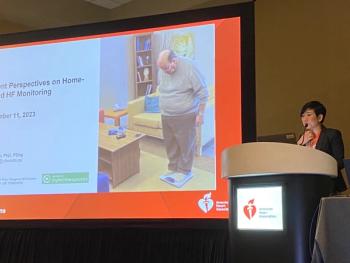
Hospital redesign can offer patients the best clinical care
Step into any newly designed hospital today and you just might do a double take. Lobbies, corridors and patient rooms look more like those in hotels these days, catering to patients and families with restaurant-like pagers, plush family seating that converts into beds and a menu of dining options that allows patients to order what they want and when.
STEP INTO ANY NEWLY designed hospital today and you just might do a double take. Lobbies, corridors and patient rooms look more like those in hotels these days, catering to patients and families with restaurant-like pagers, plush family seating that converts into beds and a menu of dining options that allows patients to order what they want and when.
While hospitals across the nation are increasingly focused on patient satisfaction, it turns out that the benefit of good hospital design extends far beyond just satisfied patients. Good clinical design can mean faster recovery, lower infection rates, better nursing care and less stress for all.
In recent months, the nonprofit Facilities Guidelines Institute and the American Institute of Architects-for the first time since they began publishing guidelines in 1947-have recommended that all newly constructed hospitals provide single-patient rooms. Studies have repeatedly shown that shared rooms can lead to higher infection rates, more medical mistakes, privacy violations and patient stress.
Universal rooms, while designed for a single patient, also can be made into shared rooms in the case of a pandemic, natural disaster or other tragedy that requires additional hospital rooms.
NURSES GET CLOSER
Another trend today is decentralized nurse stations. By designing hospitals so that smaller nurse stations are scattered throughout a facility, it puts nurses closer to their patients.
"When nurses are physically closer to their patients, they are able to react more quickly to patients' needs," says Bader. "We are also seeing how high tech translates into 'high touch.' We have hospitals now that have digital technology at the bedside that enables medical staff to stay close to the patient while being able to chart a patient's condition and review medical images. Nurses and doctors are also able to make quicker decisions because of digital images that are immediately available. It's critical for patients."
Creating hospitals that provide the best clinical care has caused a re-evaluation of all aspects of the medical environment. Hospitals have begun to look at everything from noise control to indoor air quality to the very best in green building concepts.
"What we've found is that as technology has increased, so too has noise and because of that, noise control must be part of a project's success criteria," says Jason Popelka, an architect for Sisters of Mercy Health System, headquartered in St. Louis. "We used carpeting in our heart hospital corridors to reduce the noise from foot traffic and carts rolling down hallways. Too much noise can inhibit healing because patients don't get the REM sleep and rest needed. Slower healing means longer hospitals stays, which can in turn increase the risk for acquiring a secondary infection."
Some hospitals, including M.D. Anderson and Mercy Health Center in Oklahoma City, have found creative ways to reduce noise and increase "noise awareness" in hospital hallways and waiting rooms.
"One of our nurses came up with an idea from a device she had seen in the school systems," says Chris Weigel, chief nursing officer of Mercy Health Center in Oklahoma City, a Magnet Award hospital. "[The device] is a portable, computerized traffic light that serves as a sound meter, signaling when there's too much noise."
GOING GREEN
Designing hospitals and renovating hospitals with the environment in mind also has become a focus for newer facilities. Companies worldwide, such as Wal-Mart, IBM and Toyota are finding that "going green" is no longer just an interesting experiment, it's a necessity.
Newsletter
Get the latest industry news, event updates, and more from Managed healthcare Executive.

























